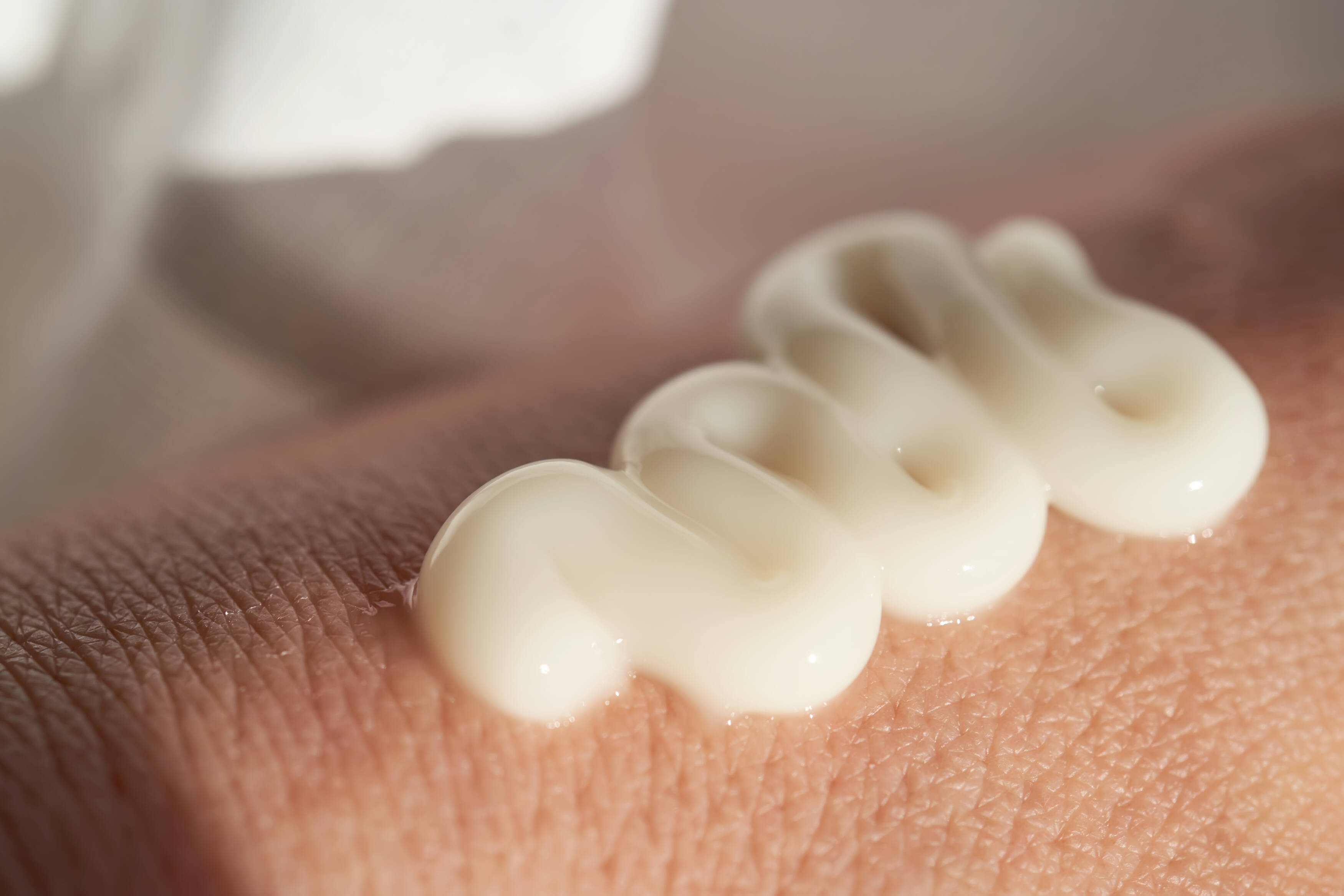
What Can I Use Instead of Denture Glue?
Denture adhesives are a hot topic among denture wearers, largely because advertisers promote adhesives and the use of adhesives rather glamorously through television and internet ads around the clock.
These ads normalize the use of denture adhesives and often make denture wearers question whether they are doing something wrong or are missing out if they are not using denture glue. Nothing could be further from the truth.
Common Denture Glue Questions and Expert Answers
The internet is full of misinformation and unproven advice about “denture glue.” Even other denture wearers can steer you wrong. This article attempts to clear up the common misconceptions related to denture adhesives and under what conditions denture adhesives are appropriate for use.
Let’s discuss some of the common questions that denture wearers have to better understand the intended purpose of denture adhesives.
What Is Denture Glue?
Denture glue, also known as denture adhesive, is a type of cellulose gum-based product that helps to temporarily improve the retention of dentures that no longer fit well. Using denture adhesive is a stop-gap measure in order to be able to wear an ill-fitting denture until you are able to have definitive dental treatment.
Although some people wear denture adhesive to improve their sense of security, a well-fitting denture should not require the use of denture adhesive. If you find yourself applying denture adhesive to loose fitting dentures every day or multiple times per day in order to keep it in your mouth, your denture does not fit.
Traditional denture adhesive will only cover up the real issue – your gums have changed over time, and your loose dentures need to be relined or replaced.
See Also: What is the Strongest Denture Adhesive on the Market?
What Can I Use in Place of Denture Adhesive?
The traditional type of denture adhesive that comes to mind is the paste form. It usually is pink and is squeezed from a tube onto the inside surface of a denture. Overuse of adhesives does come with known side effects that can impact your overall long-term health, including zinc toxicity, digestive distress, and accelerated dental bone loss. Using more adhesive does not equate to a stronger hold. A denture that won’t stay in place with a very small amount of adhesive doesn’t fit correctly and should be replaced.
What else can you use besides adhesive pastes? Other alternatives can be used in place of paste or gel-type denture adhesives. We will discuss those later in the article.
How Do You Keep Dentures in Place Without Adhesive?
Dentures that fit correctly don’t require any adhesive at all. Anyone who tells you differently does not understand the mechanics of how dentures work. The key is training yourself to hold the dentures in place using the muscles of the face and proper tongue position. Seasoned denture wearers have mastered this, eating almost anything that they want without relying on adhesives at all.
An upper denture that fits correctly takes advantage of the saliva present in your mouth to form a natural seal (or suction) against the palate. Since lower dentures are held in place by gravity, how you position your tongue makes all the difference.
If the tongue is held low or balled up in the back of the mouth, the lower denture will pop up. If you train your tongue to spread and lay on the lower denture’s inside flange, the denture will stay in place.
How Do You Make Homemade Denture Adhesive?
You can find almost anything on the Internet. If you type “What can I use instead of denture glue?” or “best denture adhesive alternatives” some interesting alternatives appear.
These include everything from using creamy peanut butter to a mixture of melted bubble gum mixed with confectioner’s sugar to this recipe available on a number of websites:
Measure 1 oz. of karaya gum powder (available at health food stores) into a small bowl. Add 3 oz. of tragacanth powder (a cake decorating supply). Stir until the two are well blended. Then, transfer to a small bottle. Add 30 drops of peppermint oil for flavoring.
Knowing that there are ways to secure a denture without using commercial denture products doesn’t necessarily mean the method will work for you or that you should use them. Again, any type of product to hold a denture in place should only be used until you are able to have your denture evaluated by a dental professional. They are the definition of a temporary fix.
What Type of Glue Can Be Used on Dentures?
Both commercial adhesives and homemade varieties can be used on dentures. However, there are other commercial products available. These include powders, creams, pads, strips, and thermoplastic products.
What Can I Use Instead of Denture Glue?
A denture wearer in need of a temporary hold over until they can see their denturist may use denture glue or the following to keep dentures secure:
Denture Powders
Denture powders add an extra layer of security for a denture that is a little loose but otherwise fits reasonably well. The use of adhesive powder is appropriate when the patient is concerned that their dentures may slip at the most inopportune moment – like when giving a speech or attending a formal dinner.
Creams
Denture adhesive cream is basically powdered adhesives that are dispersed and distributed into a mineral oil or petroleum base. Denture cream provides a hold similar to paste or gel adhesives but is generally easier to apply and clean up.
Adhesive Pads and Strips
Pre-formed strips work best for small areas such as partial denture saddles or lower dentures. Denture pads accommodate the general shape of either the upper dentures or lower complete denture and may be trimmed accordingly in order to improve coverage area while preventing over-extension.
Temporary Relines
There are a combination of over-the-counter thermoplastic adhesive products available that offer both the benefits of a temporary reline and a denture adhesive (i.e., Cushion Grip) without the mess. Unlike single-use products, dentures relined with Cushion Grip can be removed and reinserted multiple times before losing their adhesive properties.
Tips for Using Denture Glue
If you must use denture adhesive for a short time, there are better ways of applying it to the denture than squeezing a massive amount from the tube and placing a denture full of adhesive in your mouth. If you do this, you will end up with a mess that can take a long time to remove, not to mention the health effects of ingesting the excess adhesive. Here is an application method that works much better:
- Begin with a clean, completely dry denture.
- Apply 3 small equally-spaced dots to the underside surface of the denture.
- Spread the adhesive using a clean, dry finger.
- Hydrate the adhesive by sprinkling it with a few drops of cool water.
- Seat dentures in your mouth using finger pressure for 10 seconds.
- Then bite down and maintain pressure for 10 seconds. Your denture should be secure.
Benefits of a Reline
A reline is a method to improve the fit and extend the life of your denture. It involves adding new acrylic material to the inside surface, filling in the gaps where your denture no longer fits flush against the underlying tissue, and making the denture fit like new once again.
A reline is a more permanent solution to help dentures remain secure during function and often eliminates the need for denture adhesive entirely.
Expert Denture Fitting at European Denture Center
Why put up with using adhesives and home remedies when there are better solutions available? The denturists at European Denture Center understand the dilemma associated with wearing traditional complete dentures. That’s why we exclusively partner with a dental lab that uses a totally digital workflow, allowing dentures to fit much more accurately and precisely without the need for numerous adjustments to make them feel comfortable.
We take advantage of technology for your benefit, giving you a denture-wearing experience that you never dreamed was possible. See all of the best denture options, including dental implants, by arranging your free consultation appointment with one of our caring professionals today!


